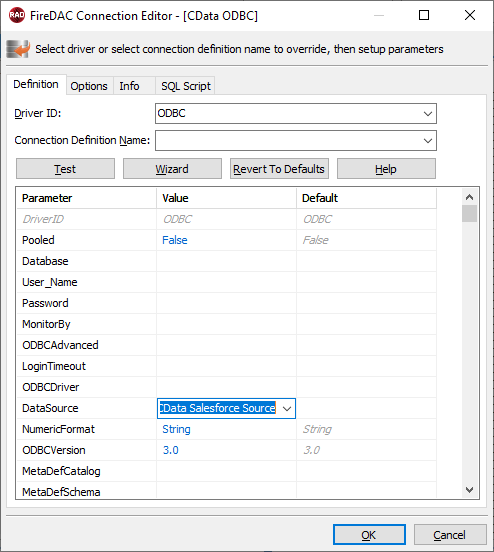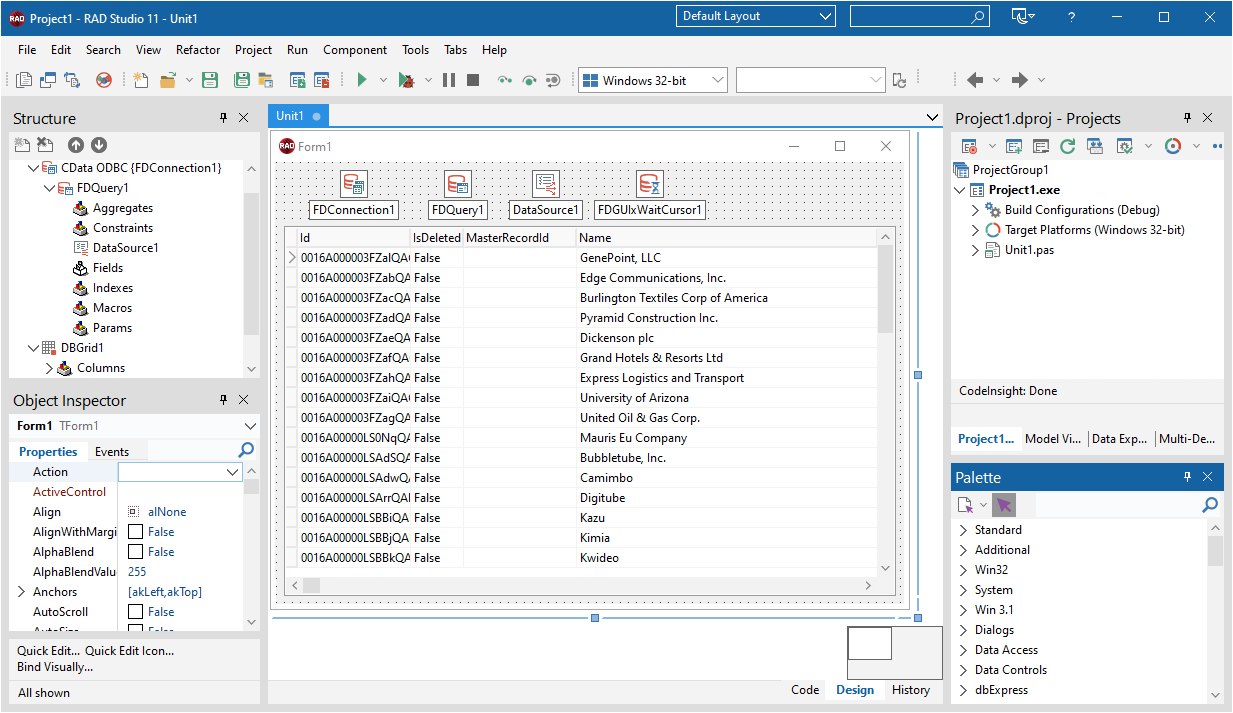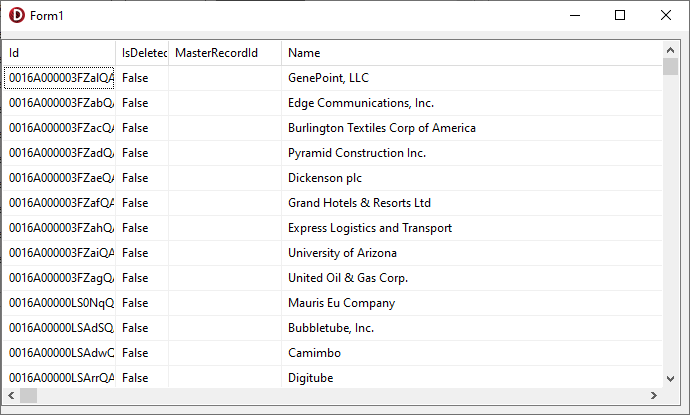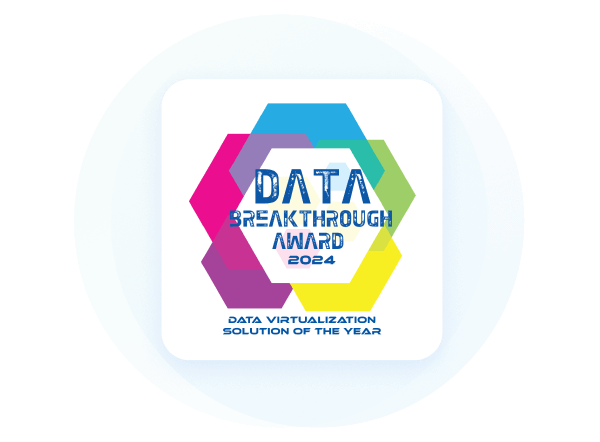Discover how a bimodal integration strategy can address the major data management challenges facing your organization today.
Get the Report →Build a Simple VCL Application for Microsoft Planner Data
How to build a simple VCL Application to view Microsoft Planner data in RAD Studio using the CData ODBC Driver for Microsoft Planner.
Embarcadero RAD Studio provides a development environment for Delphi and C++Builder applications. With the CData ODBC Driver for Microsoft Planner, you gain access to live Microsoft Planner data within RAD Studio, abstracting the data into tables, views, and stored procedures that can be used to retrieve and update Microsoft Planner data. This article will walk through connecting to Microsoft Planner and creating a simple VCL application with the Form Designer.
Create a Connection to Microsoft Planner Data
If you have not already, first specify connection properties in an ODBC DSN (data source name). This is the last step of the driver installation. You can use the Microsoft ODBC Data Source Administrator to create and configure ODBC DSNs.
You can connect without setting any connection properties for your user credentials. Below are the minimum connection properties required to connect.
- InitiateOAuth: Set this to GETANDREFRESH. You can use InitiateOAuth to avoid repeating the OAuth exchange and manually setting the OAuthAccessToken.
- Tenant (optional): Set this if you wish to authenticate to a different tenant than your default. This is required to work with an organization not on your default Tenant.
When you connect the Driver opens the MS Planner OAuth endpoint in your default browser. Log in and grant permissions to the Driver. The Driver then completes the OAuth process.
- Extracts the access token from the callback URL and authenticates requests.
- Obtains a new access token when the old one expires.
- Saves OAuth values in OAuthSettingsLocation to be persisted across connections.
You can then follow the steps below to use the Data Explorer to create a FireDAC connection to Microsoft Planner data.
- In a new VCL Forms application, expand the FireDAC node in the Data Explorer.
- Right-click the ODBC Data Source node in the Data Explorer.
- Click Add New Connection.
- Enter a name for the connection.
- In the FireDAC Connection Editor that appears, set the DataSource property to the name of the ODBC DSN for Microsoft Planner.

Create VCL Applications with Connectivity to Microsoft Planner Data
Follow the procedure below to start executing queries to Microsoft Planner data from a simple VCL application that displays the results of a query in a grid.
-
Drop a TFDConnection component onto the form and set the following properties:
- ConnectionDefName: Select the FireDAC connection to Microsoft Planner data.
- Connected: Select True from the menu and, in the dialog that appears, enter your credentials.
-
Drop a TFDQuery component onto the form and set the properties below:
- Connection: Set this property to the TFDConnection component, if this component is not already specified.
SQL: Click the button in the SQL property and enter a query. For example:
SELECT TaskId, startDateTime FROM Tasks WHERE TaskId = 'BCrvyMoiLEafem-3RxIESmUAHbLK'- Active: Set this property to true.
Drop a TDataSource component onto the form and set the following property:
- DataSet: In the menu for this property, select the name of the TFDQuery component.
-
Drop a TDBGrid control onto the form and set the following property:
- DataSource: Select the name of the TDataSource.
- Drop a TFDGUIxWaitCursor onto the form — this is required to avoid a run-time error.

You now have an executable application that displays the results of the SQL Query set in the TFDQuery object.







